Shift planning
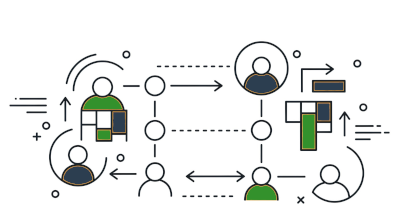
An integrated shift planning tool that leverages data to enable better planning quality, simplify the process, provide insight that is otherwise not available to the planners and enable additional automation of other processes
The unmet need
- Clinical practitioners are typically the most in-demand, in-shortage and costly resource for health service providers
- Hence, carefully planning their shifts is critical for maintaining an efficient and viable service
- In our target market, shift planning was done with various tools from white board and markers to spreadsheets to various specialized software
- All of the aforementioned tools demanded onerous effort, and depended heavily on human knowledge of the day to day operations in order to be efficient
The value proposition
Having large amounts of data on the actual operations of the clinical services, we saw an opportunity to provide an integrated shift-planning tool, leveraging data to enable better planning quality, simplify the process and provide insight that is otherwise not available to the planners
The KPI
- Adoption level of the shift planning tool by services
The implementation
- Clinicians' shifts are entered via a graphical user interface per service
- Based on the entered shifts, the system calculates the aggregated capacity derived from the individual characteristics of each assigned clinician
- The system presents the total capacity vs the expected demand based analyzing historical data, enabling to balance the two
- In addition, for every shift, the system calculates the predicted waiting times for the given planned capacity and predicted demand, enabling insight on SLA compliance
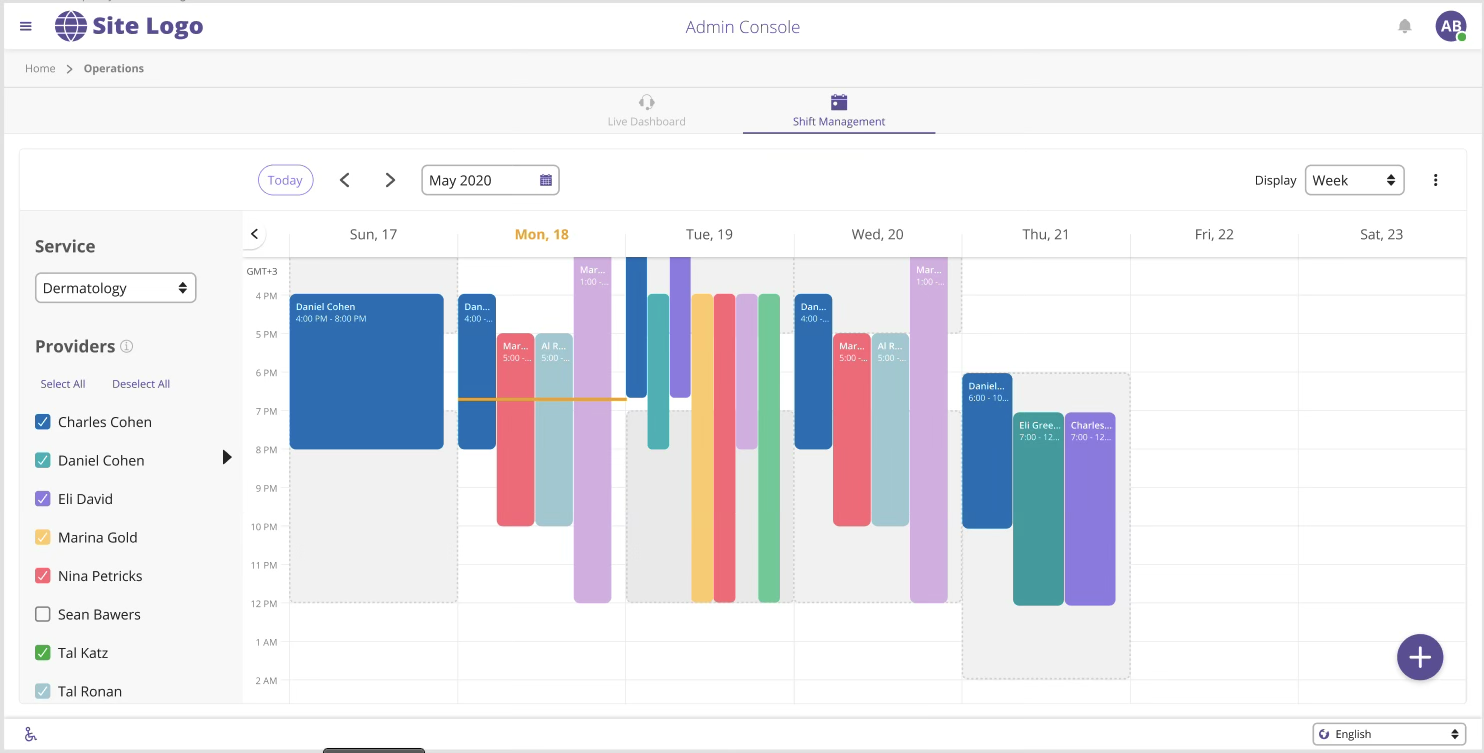

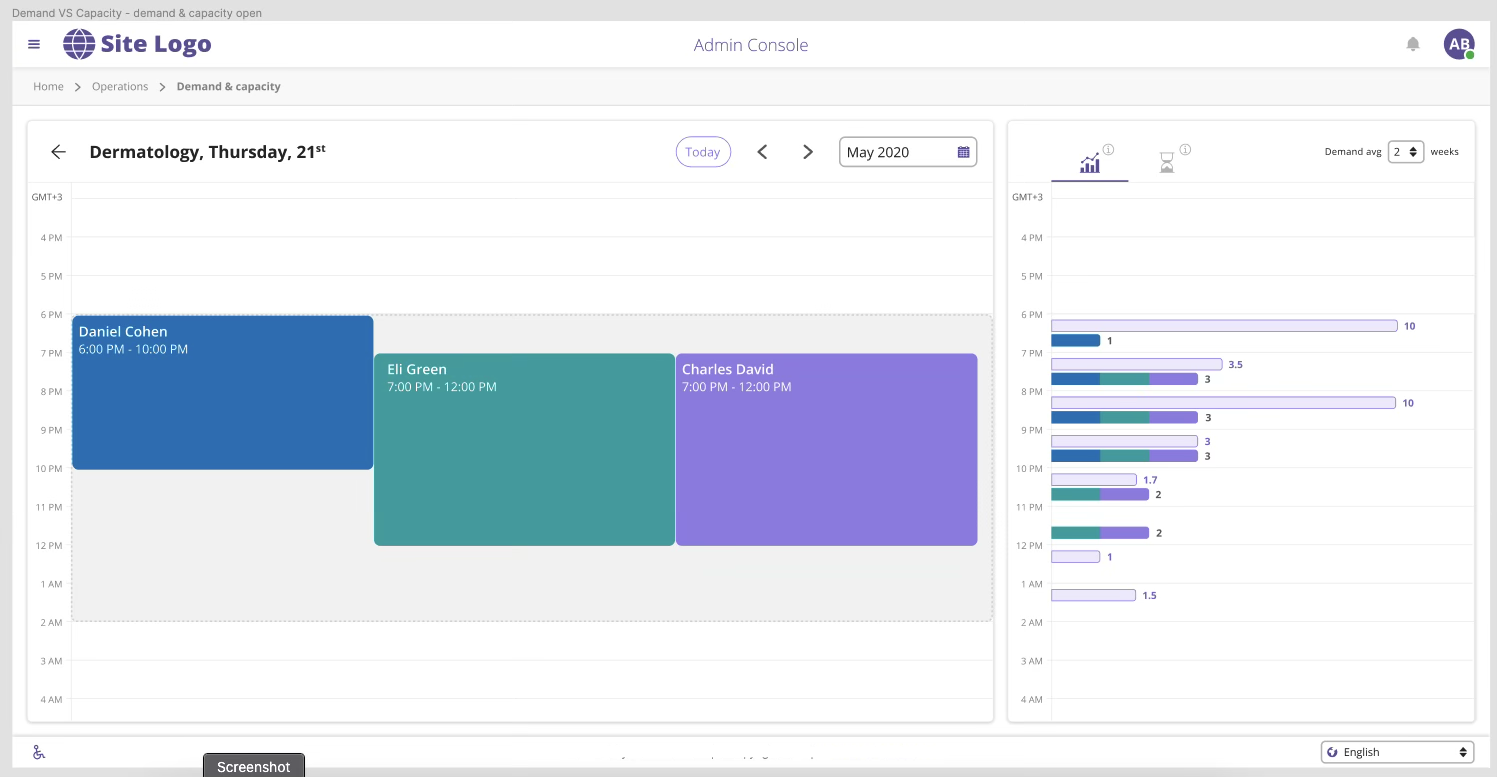
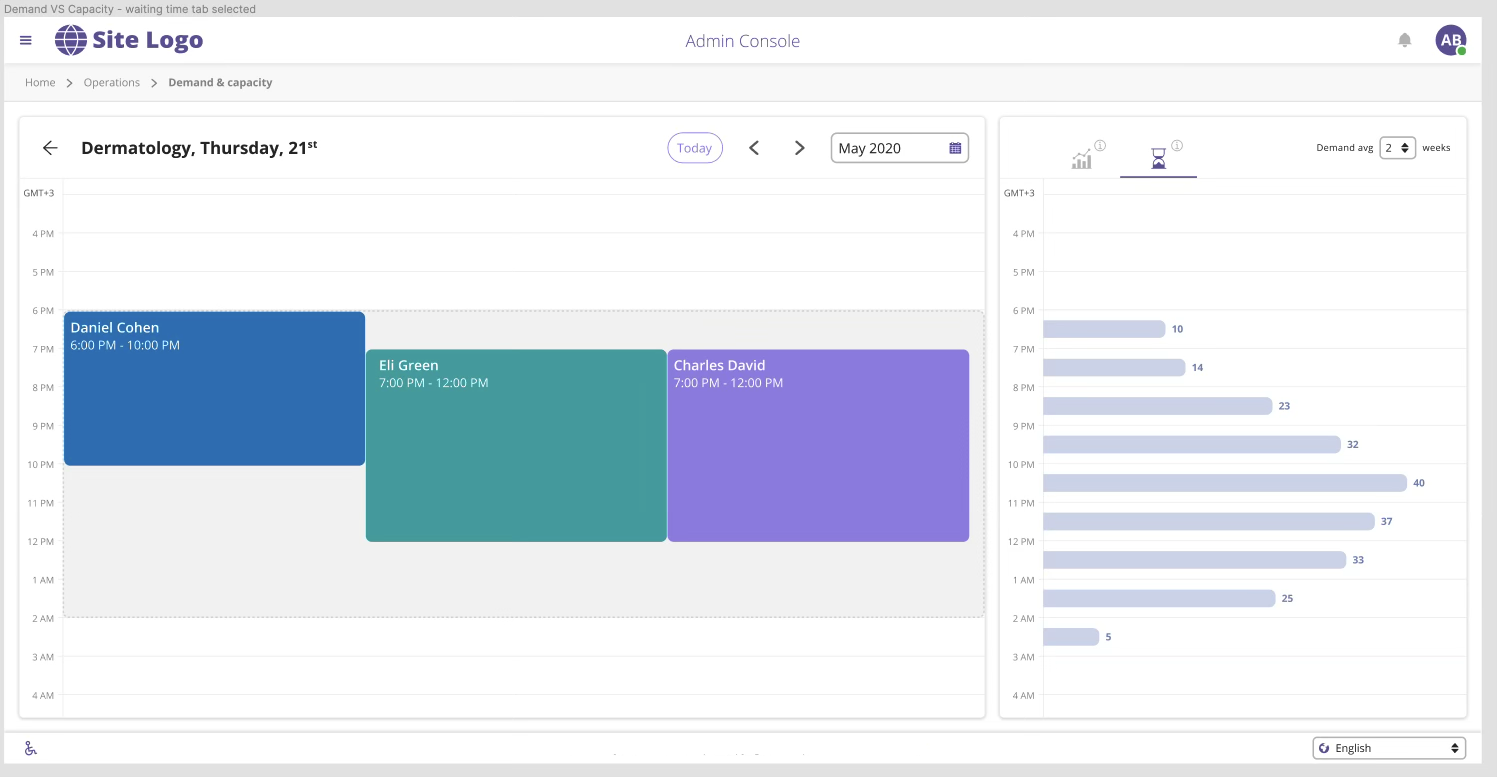
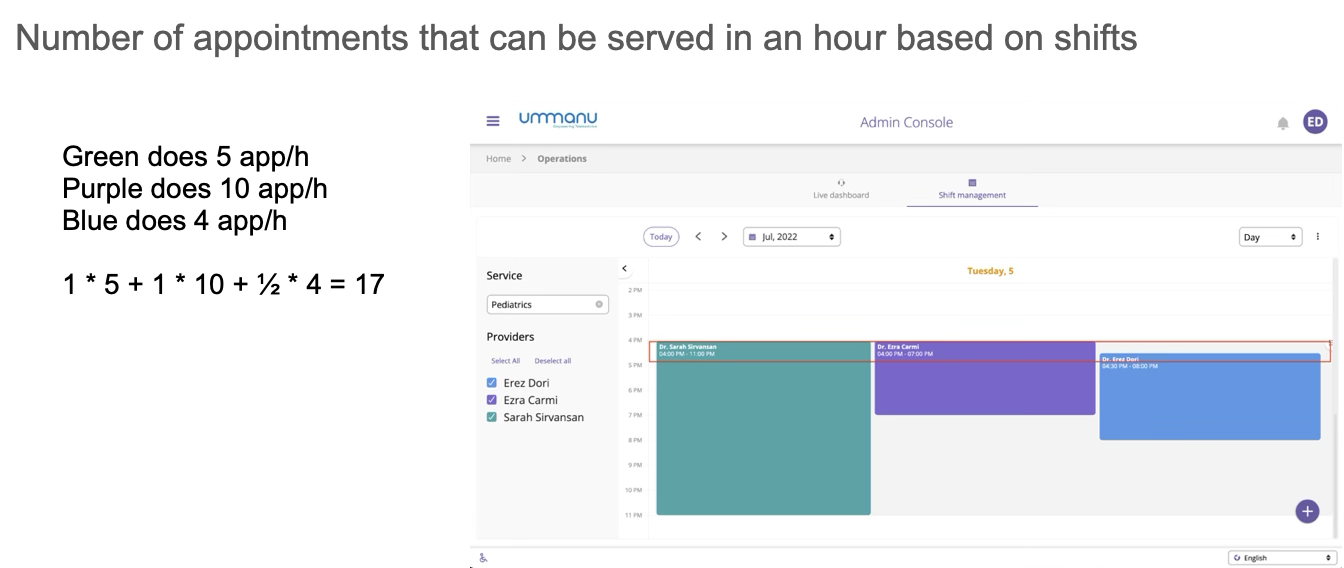
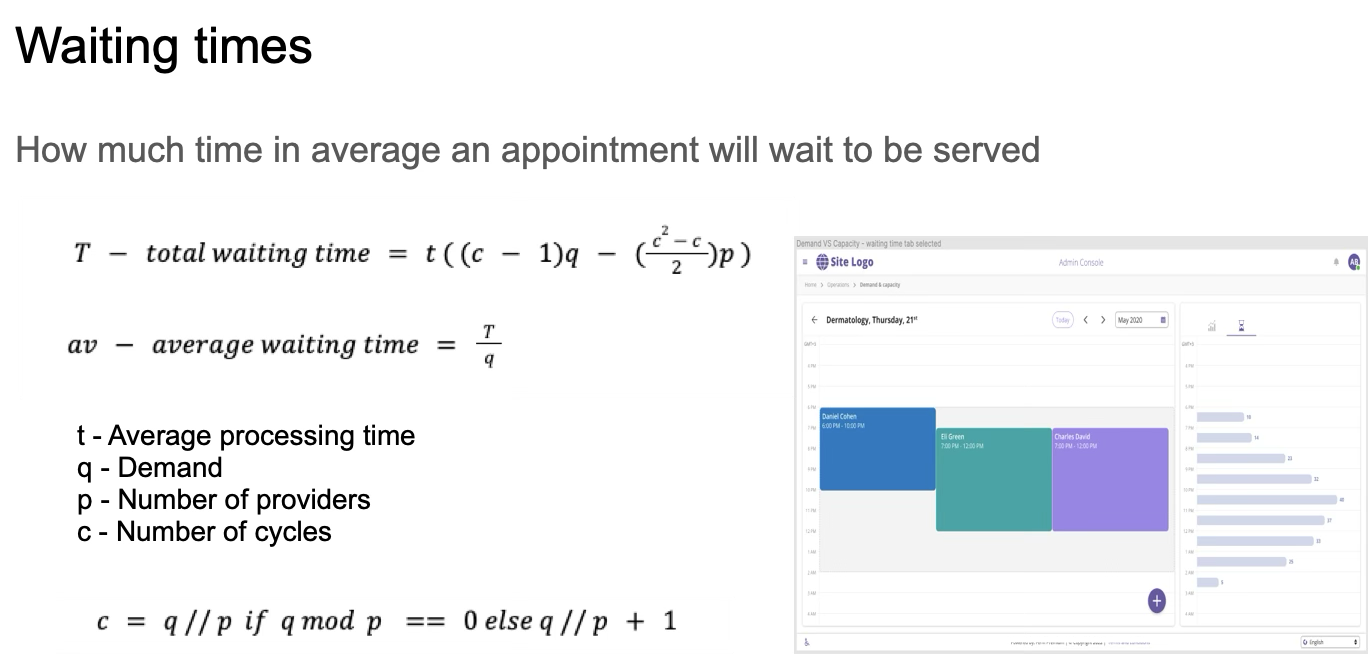
The impact
The tool was adapted with good user satisfaction in some services, but faced challenges in use cases where the organization was heavily invested in a third party specialized solution which offered more features. Additional development was required to successfully compete with the specialized solution
